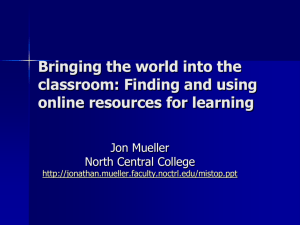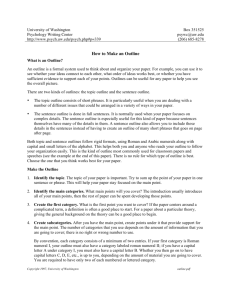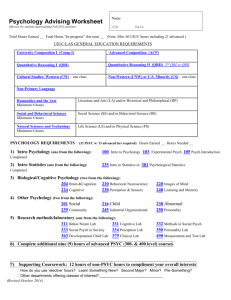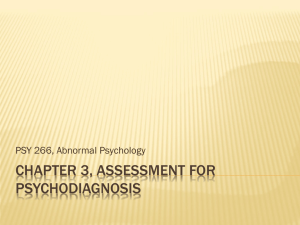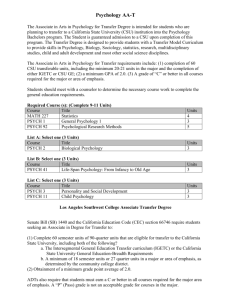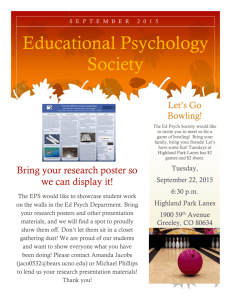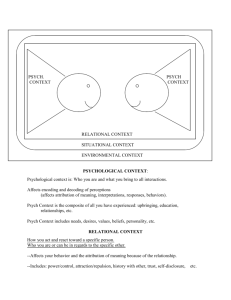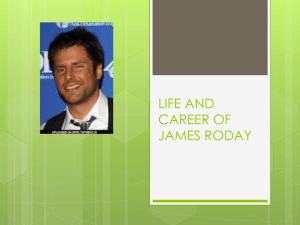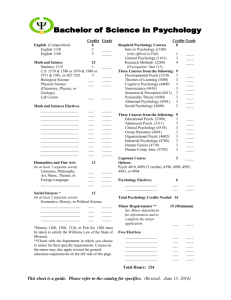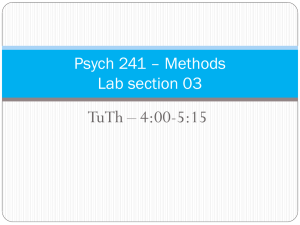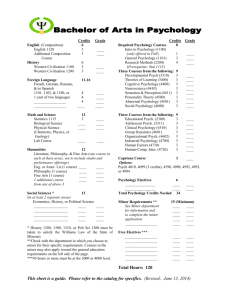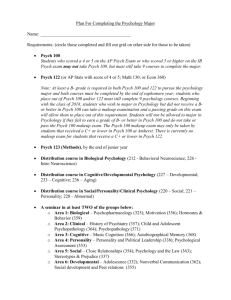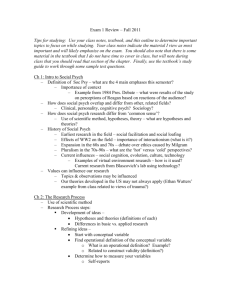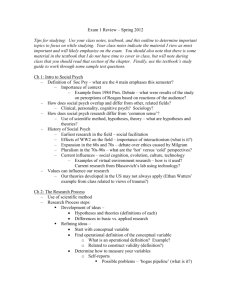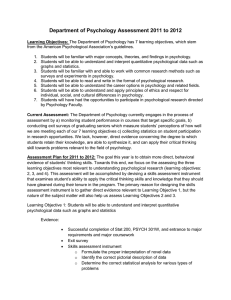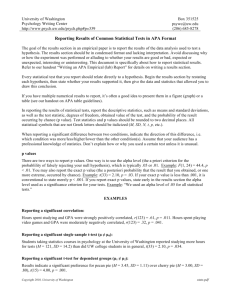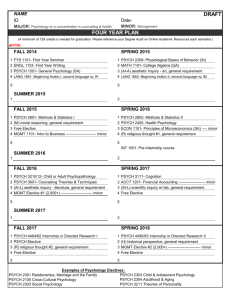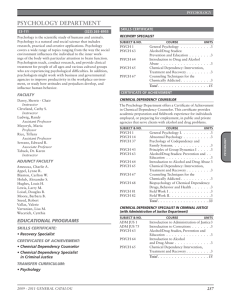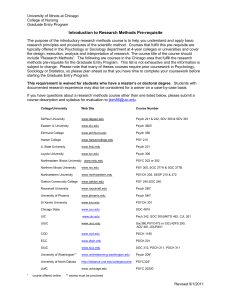Cultural Psychology
advertisement
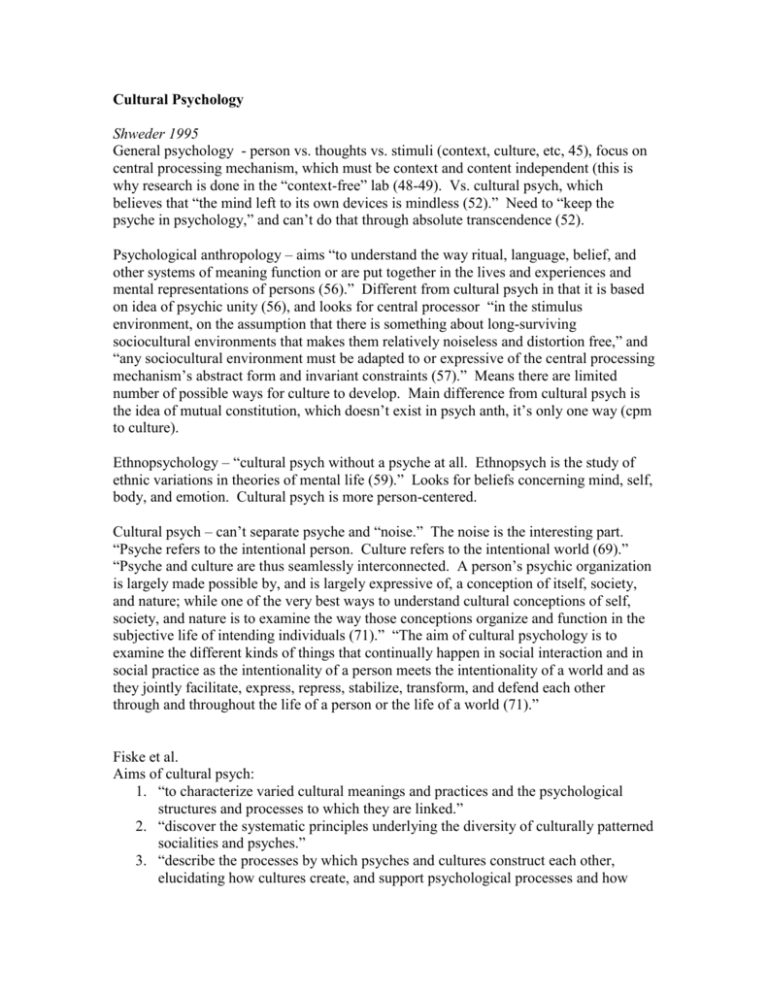
Cultural Psychology Shweder 1995 General psychology - person vs. thoughts vs. stimuli (context, culture, etc, 45), focus on central processing mechanism, which must be context and content independent (this is why research is done in the “context-free” lab (48-49). Vs. cultural psych, which believes that “the mind left to its own devices is mindless (52).” Need to “keep the psyche in psychology,” and can’t do that through absolute transcendence (52). Psychological anthropology – aims “to understand the way ritual, language, belief, and other systems of meaning function or are put together in the lives and experiences and mental representations of persons (56).” Different from cultural psych in that it is based on idea of psychic unity (56), and looks for central processor “in the stimulus environment, on the assumption that there is something about long-surviving sociocultural environments that makes them relatively noiseless and distortion free,” and “any sociocultural environment must be adapted to or expressive of the central processing mechanism’s abstract form and invariant constraints (57).” Means there are limited number of possible ways for culture to develop. Main difference from cultural psych is the idea of mutual constitution, which doesn’t exist in psych anth, it’s only one way (cpm to culture). Ethnopsychology – “cultural psych without a psyche at all. Ethnopsych is the study of ethnic variations in theories of mental life (59).” Looks for beliefs concerning mind, self, body, and emotion. Cultural psych is more person-centered. Cultural psych – can’t separate psyche and “noise.” The noise is the interesting part. “Psyche refers to the intentional person. Culture refers to the intentional world (69).” “Psyche and culture are thus seamlessly interconnected. A person’s psychic organization is largely made possible by, and is largely expressive of, a conception of itself, society, and nature; while one of the very best ways to understand cultural conceptions of self, society, and nature is to examine the way those conceptions organize and function in the subjective life of intending individuals (71).” “The aim of cultural psychology is to examine the different kinds of things that continually happen in social interaction and in social practice as the intentionality of a person meets the intentionality of a world and as they jointly facilitate, express, repress, stabilize, transform, and defend each other through and throughout the life of a person or the life of a world (71).” Fiske et al. Aims of cultural psych: 1. “to characterize varied cultural meanings and practices and the psychological structures and processes to which they are linked.” 2. “discover the systematic principles underlying the diversity of culturally patterned socialities and psyches.” 3. “describe the processes by which psyches and cultures construct each other, elucidating how cultures create, and support psychological processes and how these psychological tendencies in turn support, reproduce, and sometimes change the cultural systems.” “People must think, feel and act with reference to local practices, relationships, institutions, and artifacts (917).” “the science of social psychology reflects and incorporates a vast set of cultural meanings and practices that are nearly invisible from within its own subculture (919).”


